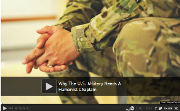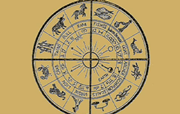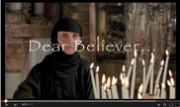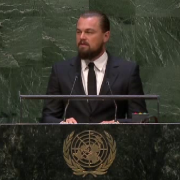 Alawite victims of ISIS, beheaded and arranged as a display for the media and public .
Alawite victims of ISIS, beheaded and arranged as a display for the media and public .
Bill Maher's recent monologue on "Real Time" about the failure of liberals to speak out about the routine atrocities and violations of human rights carried out in the name of religion in the Muslim world has unleashed a torrent of commentary, much of it from progressives advocating more, not less, tolerance of Islam. However major religions all contain macabre fables, explicit injunctions for vile behavior that no civilized person should accept as "holy".
New York Times columnist Nicholas Kristof, who sided with Ben Affleck against Maher in a follow-up segment a few days later, calls ISIS rebels, in an op-ed, "barbarians" who "give all Islam a bad name," and asks us to take into account the religion's diversity, lest we slip into "Islamophobic bigotry." Fareed Zakaria, in his Washington Post column,cautions us to recall that Islam, Christianity and Judaism once peacefully coexisted, but acknowledges that Islam suffers from a "cancer" - extremism that incites acts of terrorism. This he views, though, as a problem of "Islam today." (He neglects to point out that in the Muslim-dominated countries where this peaceful coexistence occurred, Christians and Jews suffered humiliating second-rate dhimmi status, unequal legally or socially to Muslims.)
One pundit in particular, though, has busied himself opining on Maher and nonbelievers in general - Reza Aslan, Islam's most prominent apologist of late. Delivered via multiple media outlets, his remarks, brimming with condescension, tinged with arrogance and laden with implicit insults to thinking people, deserve special scrutiny for one main reason: among well-intentioned liberals who don't know much about religion, his words carry weight.

In a New York Times editorial, Aslan accused Maher and other nonbelievers of "exhibiting an inability to understand religion outside of its absolutist connotations." Such folk, in his telling, unjustly "scour holy texts for bits of savagery and point to extreme examples of religious bigotry, of which there are too many, to generalize about the causes of oppression throughout the world." They fail to grasp, in his view, that "religion is often far more a matter of identity than it is a matter of beliefs and practices."
Yet Aslan accuses the benighted critics of religion of a far more grievous misapprehension: the assumption that words mean what they actually mean. Here I'll quote him at length.
"It is a fallacy to believe that people of faith derive their values primarily from their Scriptures. The opposite is true. People of faith insert their values into their scriptures, reading them through the lens of their own cultural, ethnic, nationalistic and even political perspectives. . . . After all, scripture is meaningless without interpretation. The abiding nature of scripture rests not so much in its truth claims as it does in its malleability, its ability to be molded and shaped into whatever form a worshiper requires. . . If you are a violent misogynist, you will find plenty in your scriptures to justify your beliefs. If you are a peaceful, democratic feminist, you will also find justification in the scriptures for your point of view."
Now we have to stop and ponder what we are being sold here. Aslan is essentially taking a postmodernist, Derrida-esque scalpel to "scripture" and eviscerating it of objective content. This might pass muster in the college classroom these days, but what of all those ISIS warriors unschooled in French semiotic analysis who take their holy book's admonition to do violence literally? As they rampage and behead their way through Syria and Iraq, ISIS fighters know they have the Koran on their side - a book they believe to be inerrant and immutable, the final Word of God, and not at all "malleable." Their holy book backs up jihad, suicide attacks ("martyrdom"), beheadings, even taking captive women as sex slaves. This is not surprising; after all, the prophet Muhammad was a warrior who spread Islam by the sword in a dark, turbulent time in history. (Christianity's propagation had, in contrast, much to do with the Roman emperor Constantine's fourth-century conversion and subsequent decriminalization of the faith.)
Moreover, the razor-happy butchers of little girls' clitorises and labia majora, the righteous wife-beaters, the stoners of adulterers, the Shariah clerics denying women's petitions for divorce from abusive husbands and awarding sons twice the inheritance allowed for daughters, all act with sanction from Islamic holy writ. It matters not a whit to the bloodied and battered victims of such savagery which lines from the Hadith or what verses from the Koran ordain the violence and injustice perpetrated against them, but one thing they do know: texts and belief in them have real-life consequences. And we should never forget that ISIS henchmen and executioners explicitly cite their faith in Islam as their motive. Tell that to Derrida - or Aslan.
Not just belief in the Koran leads to mayhem, though. Open the Book of Leviticus (in the Hebrew Bible and Old Testament) and read the prescriptions of death (often by stoning or burning) as punishment for, among other things, cursing your parents, committing adultery, practicing bestiality (with mandatory slaughter of the unwitting animal as well), engaging in prostitution or sodomy, worshipping another god or taking God's name in vain, and being the (female) victim of rape. The New Testament is somewhat less vicious, but even gentle Jesus, meek and mild, warned in Matthew (10:34): "Do not suppose that I have come to bring peace to the earth. I did not come to bring peace, but a sword," and preached "unquenchable fire" and damnation for sinners.
That the faithful have always been acting on the words in their holy books may not accord with how Aslan would like us to see religion, but it is hardly news. Even Shakespeare found this problematic. In "The Merchant of Venice," he wrote that "In religion, what damned error but some sober brow will bless it and approve it with a text, hiding the grossness with fair ornament." Grosser "errors" than beheadings or female genital mutilation cannot be imagined; intentionally trying to obscure cause and effect where faith is concerned, as Aslan does, is morally reprehensible, is insensitive to the victims, and provides cover for their butchers.
 They love all civilizations except Western civilization. They tolerate no other religions.
They love all civilizations except Western civilization. They tolerate no other religions.
The problem with religion lies not with, as Aslan would have it, interpretation - postmodern or otherwise - but with, for starters, the founding texts themselves. The canonical writings of Islam, Christianity and Judaism all contain a plethora of macabre fables and explicit injunctions for vile, sadistic behavior that no civilized person would or should accept, but which far too many do take as literal truth. (And not just in the Middle East. Even in the United States, a Gallup poll conducted this summer established that three out of four Americans consider the Bible the actual word of God.) The only way for those hoping to justify faith while shielding their scripture from censure is to do what Aslan does: shift the focus from the "holy" texts to the people reading them.
The so-called "New Atheists," including Sam Harris, Richard Dawkins and the late Christopher Hitchens, have tried to do the opposite: get people to examine religion and help them understand it as innately backward, obscurantist, irrational and dangerous. Their aggressive secularism has, of course, stirred controversy and resentment. It was bound to do so. For millennia, the faithful have held the high moral ground virtually unopposed. Now (at least occasionally) under fire, some modern-day believers have taken to levying a clever yet false counter-accusation; namely, that the so-called "New Atheism" amounts to a "religion all its own" and that nonbelief can be just as hazardous as nonbelievers say religion is.

 Video: World's Oldest Freethought Publication
Video: World's Oldest Freethought Publication Video: Theism is Not Rational by Aron Ra.
Video: Theism is Not Rational by Aron Ra.


 Video: A C Grayling Discusses Humanism
Video: A C Grayling Discusses Humanism Video: Leonardo DiCaprio
Video: Leonardo DiCaprio 30 Of The Most Violent Exhortations From The Bible, Torah, And Quran
30 Of The Most Violent Exhortations From The Bible, Torah, And Quran











